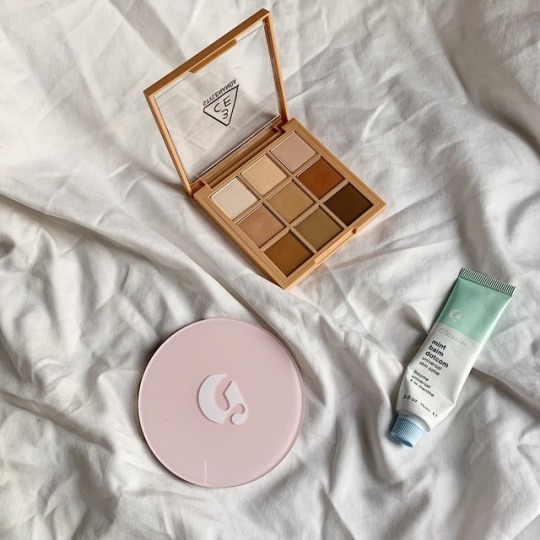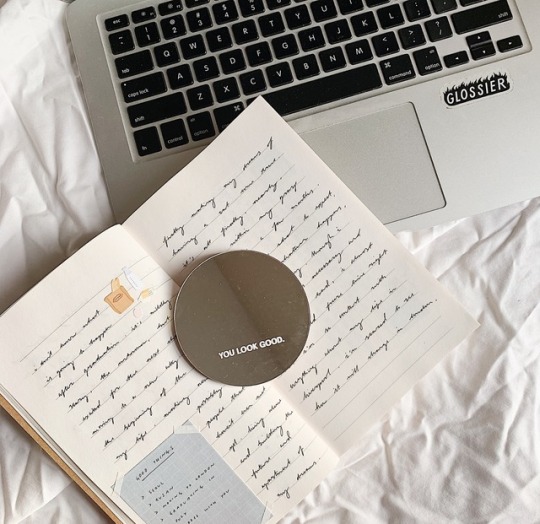🌻aria / 22 / infj 🌻economics graduate & kpop enthusiast 🌷🌱sideblog🌱 main blog[my posts]🍒
Don't wanna be here? Send us removal request.
Text


17.02.20
i love learning korean,, but i love my macarons more 💕💓💞💫
spent my afternoon learning more korean, printed out some hiragana practice worksheets, and exercised for maybe 5 minutes.
and binge watching tyranitartube’s reborn nuzlocke 🤤🤤
🎶 listening to: our souls at night - sondia 🎶
#studyblr#inspiration#motivation#personal#study#study notes#studygram#studyspiration#positivity#studying#sondia#korean#japanese#studyspo#bujo#my-posts#macaroon#studystudystudy#languages
4 notes
·
View notes
Text


14.02.20
marked my first mock TOPIK and got only 1 question wrong, kinda proud of myself🥺
hiragana is harder than i thought, but with time i’m sure i’ll get there🥵
🎶 listening to: be coloured - kim yuna 🎶
#study tips#study#studygram#korean#japanese#topik#inspo#study inspo#journal#motivation#positivity#bullet journal#bujo#studying#study blog#languages#personal#studyblr#studyspiration#study notes#inspiration#my-posts
32 notes
·
View notes
Photo
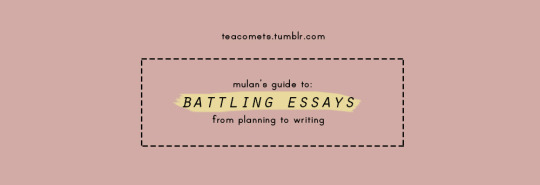

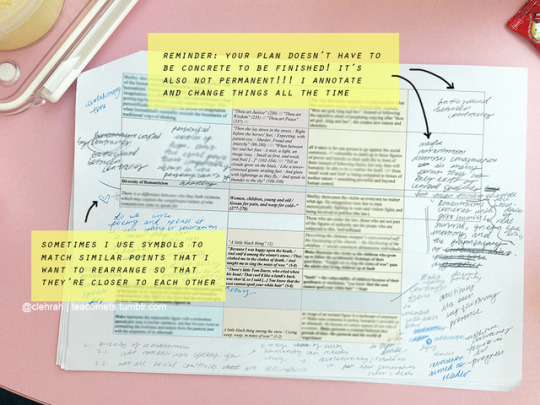



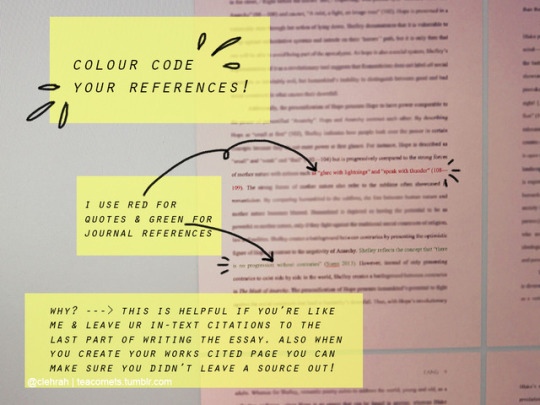
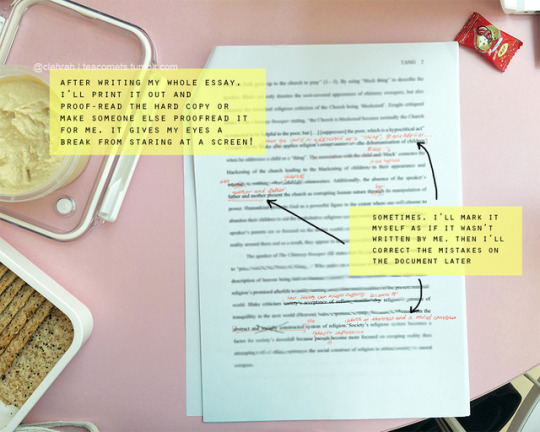
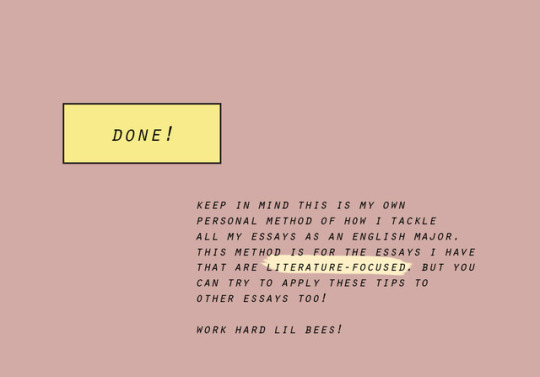
a small guide on how i battle my essays! (click on an image to view it clearer)
(keep in mind: i’m an english major so a majority of my essays are literature-focused!)
these are just some of the methods i want to share that work for me when i write my innumerable amount of essays! i’m definitely a huge planner so it’s no secret that i spend a lot of time on an essay. if you’re a deadline fighter, these tips might not necessarily be helpful (especially the handwriting one). but i hope this gives you an insight on how i write my essays! 🌈
30K notes
·
View notes
Photo

i was terrified of doing this in undergrad, and now that i’m asked to write them fairly often, i am fondly exasperated when my students don’t know how to ask for them. obviously there’s no single way, but here’s the way i usually do it.
THE FIRST EMAIL
should be short & should mainly be asking whether they’re willing to write you the letter
should provide only the basics - what the professor absolutely needs to know.
the position you’re applying for
when the letter would be due
optional: if you’re afraid they won’t remember you, a quick line identifying yourself & your relation to them
i like to provide an “out,” in case they don’t want to or are unable to write the letter
SAMPLE Dear Professor X, I’m applying for a job as an English tutor at the University Student Resource Center, and was wondering if you’d be willing to write me a letter of recommendation for the position. [optional identification: I really enjoyed taking English 300 with you in Winter 2016, and I’m hoping to develop and pass on those skills to other students through this job.] The letter would be due by September 1st - I know you’re very busy, so I completely understand if you’re not able to write one. All best, Your Name
THE SECOND EMAIL
they said yes!! amazing.
this one can provide a little more information – a link to the job posting, if there is one, or you can write a quick summary of the position, plus a sentence or two about why you’re excited/interested in the job.
also tell them where to send the letter!!
directly to the recruiter for the job
to you, to add to your application packet
upload to an online LoR service or to an application website
99% of the time folks are fine with receiving electronic copies, but if they need to mail a hard copy, let them know up front.
SAMPLE: Dear Professor X, Thank you so much! I really appreciate it. Here’s the link to the job listing; the letter should be sent as a .pdf file to the email address at the bottom of the page, anytime before 9/1. Thanks again – I’m hoping that this job will provide me with some teaching experience and the opportunity to work on my own writing. Please let me know if you need any more information! Best, Your Name
WHEN TO SEND A FOLLOW-UP
these stress me out real bad but here’s the deal: most professors have a very shaky relationship to deadlines (especially when they have half a dozen more important ones than your piddly LoR).
the upshot: do not be afraid to nudge them.
often they need the nudge and are appreciative of it.
when that nudge happens is up to you and how much room you’ve given them before the deadline, and it’ll look different depending on your relationship with that professor.
GRAD SCHOOL LETTERS
i offered to send my professors essays that i had written for their classes, especially if i had taken those classes more than a year before asking them to write the letter, just so they could refamiliarize themselves with my work. you can also offer to send them your writing sample, if you haven’t already asked them to look it over for you.
honestly i’d recommend asking for these in person bc it’ll give you a chance to talk to them about their grad school experience and your own hopes & aspirations, which will help them write a more personal, fleshed-out letter.
one important note: if this letter is intended for use in grad school applications, do not stress out if it’s a little late. most programs do not care, and pretty much all of them accept late letters without a problem. your professor’s ability to meet deadlines does not reflect on you, and professors are intimately familiar with running late on LoRs. they really honestly don’t care. as long as it gets there before too long, you’ll be fine.
thank-yous are up to you! keep in mind that many departments have policies about gift-giving. i did give thank-yous to my three major letter writers, but they were handwritten cards & homemade cookies, nothing store-bought or expensive.
9K notes
·
View notes
Text
how to create aesthetic graphics
(a tutorial by rihleymatthews)
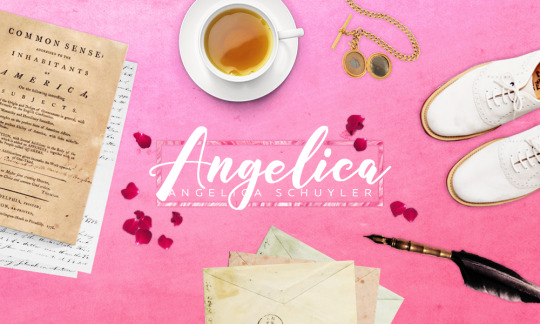
so, many people requested me a tutorial on these (x and x) graphics, and since they are not hard at all to create, i decided to try explaining to you guys how they come to life.
WARNING: this is a long and detailed tutorial. Please keep in mind I tried to show all the tricks I normally use for these graphics, so some steps are optional or extra.
you’ll need:
basic to medium photoshop knowledge (such as cropping, blending and shadowing)
a concept (a tv show, a character, something you can pick objects to represent them or their porsonality)
patience, a lot of patience.
Keep reading
5K notes
·
View notes
Text




knives out (2019)
dir. Rian Johnson
here’s my spread for Knives Out (that i rewatched)! i absolutely loved loved loved this movie & i had to post this! it’s also posted on my instagram @/filmjournalism so do check it out xx
a merry christmas to all!❄️🎄
#studyblr#inspiration#motivation#personal#knives out#movie#journalism#film#studygram#studyspiration#study#study notes#film journal#movie journal#journaling#movie review#chris evans#daniel craig#rian johnson#my-posts
65 notes
·
View notes
Text


𝟐𝟏:𝟎𝟕 | 𝐨𝐜𝐭𝐨𝐛𝐞𝐫
here are some clips from my post on my studygram and these summary pages took a decade at least oml
6K notes
·
View notes
Text


09.14.19 - happy april everyone! suppose it’s gonna be a stressd out april for me, as my exams start in a month. helppp
starting today off before 8 am for a change, with some coffee and a study plan for the coming month.
(who else is excited about game of thrones?!)
13K notes
·
View notes
Text


this week has been a hectic mess, but i’m sure everything will be fine eventually. here’s to another week of exams!
listening to: shudder to think - tegan & sara
#studyblr#inspiration#motivation#personal#study#study notes#studygram#studyspiration#positivity#studying#math#notes#assignment#my-posts#study hard#studyspo#studywithme
11 notes
·
View notes
Photo


MONDAY 01 MAY 2017 - some one-page summaries that i do for every little topic per module, and a matching spread from last month!! feeling good n productive ᕕ( ᐛ )ᕗ
10K notes
·
View notes
Text

been a long while since i posted, i’m in the midst of my exams now 😭
listening to: variation 15 - hans zimmer
#studyblr#inspiration#motivation#personal#study#study notes#studygram#studyspiration#positivity#studying#exams#study hard#chemistry#hans zimmer#variation 15#dunkirk#my-posts
77 notes
·
View notes
Text
20 Common Interview Questions, What They Really Mean, and How to Smartly Answer Them
This is a sheet given to me by my college’s business department and I thought it was helpful so I’ve typed it up fr you guys. All credits to my college business department.
1. Tell me about yourself. What it means: What are your career goals for the next 1-3 years/5-10 years?
This question might come in different forms, but it is the most often asked question in interviews, especially at the start. Have a short statement prepared that describes a little about your past, a lot about your present, and a little about your future that essentially answers the question, “Why are we sitting across from each other and talking today?” Be careful that it does not sound rehearsed and be sure you sound excited about the opportunity and fully engaged. Limit your answer to relevance with the interview. Talk about things you have done that relate to the position you are interviewing for and show strategy in your thinking that led you to this interview. Start with the item farthest back, work up to the present and touch on the future. Let the recruiter know how this position ties into the career map you have planned. Set the footing to shift from a mundane interview into impactful dialogue.
2. How did you choose this line of work?
They are looking for people who are strategic and apply critical thinking to decisions. Have a good answer ready, showing passion for the field.
3. Why did you leave your last job? or Why do you want to leave your job? or What did you enjoy/not enjoy about your last job?
Stay positive regardless of the circumstances. Don’t refer to a major problem with management and never speak ill of supervisors, co-workers or the company. If you do, you will be sullied. Keep smiling and talk about leaving for a hopeful, forward-looking reason (i.e. chance to make an impact, use skills, etc.).
4. What experience do you have in this field? or Why should we hire you? or Give me an example from your experience or education that shows your readiness for this role.
Speak about specifics that relate to the position for which you are applying. If you do not have specific experience, get as close as you can (aka make it up). It is critical that you prepare by unpacking your brain, and know how to tie your experiences/skills to the position description. Give them your best pitch and smile!
5. What do co-workers/former employers say about you?
Be prepared with a quote or two. Either a specific statement or a paraphrase will work. “Jamal Clark, a colleague at Smith Company, always said I was the hardest worker he’d ever known.” It is as powerful as Jamal saying it at the interview himself. Trouble answering this? Ask former colleagues and professional friends for their opinions!
6. What do you know about our firm? or Why do you want to work for us? Or Why do you want the job?
These questions are the primary reason to do research on the organization before the interview. Find out where they have been and where they are going. What are the current issues? Who are the major players? Can you get behind their mission? Crucial research includes reviewing their “About Us” webpages, googling current events where they were involved, and looking on Glassdoor.com to get the scoop on positive things their employees are saying. This takes thought and should be based on the research you have done on the organization as a whole plus a mention of the specific position. Know that job description very well! Sincerity is extremely important. Relate response to long-term career goals. A flat answer here may end the interview, so be prepared.
7. What kind of salary do you need?
It’s a loaded question and a thorny game that you will probably lose if you answer first. So, try not to answer it. Instead, consider discussing how the experience this opportunity offers is the main compensation you are seeking. Or, if you want the conversation to unfold, try, “What is the pay range someone with my skill set and degree could expect for this position?” In some cases, the interviewer will tell you. If not, say that it can depend on the details of the job and ask if you can discuss at a later stage in the interviewing process so you more fully understand the responsibilities of the position. If the interviewer presses, be sure you have done your research on appropriate salaries and give a $7k pay range that makes sense for your lifestyle, your experience, your location, and the position. Use salary.com, Glassdoor.com and Bureau of Labor Statistics to do your research.
8. Provide an example of your ability to think quickly and clearly on your feet.
Companies are looking for innovative thinkers who do not need to be coddled and who truly are up to the challenges of business, most of which require timely, analytical, and creative people. Have a robust STAR** story ready to address this question.
9. Tell me about a time when you helped get a team focused and led them to success.
You are, of course, a team player, right? Be sure to have examples ready: specific stories that show you often perform for the good of the team rather than for personal success are good evidence of your team attitude. Do not brag; just say it in a matter-of-fact tone. This is a key point. Use the STAR** method to stay focused and provide a thorough reply.
10. Are you applying for other jobs?
Be honest but do not spend a lot of time in this area. Keep the focus on this job and what you can do for this organization. Anything else is a distraction.
11. Have you ever been asked to leave a position? I
f you have not, say no. If you have, be honest, be brief and avoid saying negative things about yourself, the people or organization involved. Find the positive spin.
12. What is your greatest strength? Follow Up: Tell me about a time when this professional strength made the difference between success and failure.
Numerous answers are good, just stay optimistic and truthful. A few good examples: ability to prioritize, work under pressure, solve problems or focus on projects, perhaps professional expertise, leadership skills, positive attitude, reporting skills… but be able to prove your reply with a STAR** story.
13. What kind of person would you refuse to work with?
Do not be trivial. It should take disloyalty to the organization, violence, or criminal behavior to get you to refuse to work with a colleague. Minor objections may label you as a whiner. If the version of this question is, “What type of person do you prefer not to work with?”, again don’t be trivial, lengthy, or negative. Focus on discussing your ability to work well with just about anyone.
14. Tell me about a time when you had an idea to improve a process.
They are looking to see that you can (a) take enough ownership to even think about improvements, (b) think creatively and challenge norms, © present enhancements to others with emotionally intelligence, and (d) consider risks of change. Have a great STAR** story!
15. Tell me about a problem you had with a supervisor.
This is a test - If you fall for it and start tearing up an old boss, you failed. Stay positive and either reply that you have not had any trouble with a supervisor if that’s the case, or provide a short STAR** story about how you constructively worked to solve the issue and how your relationship was strengthened as a result. Focus on the happy result!
16. What motivates you to do your best on the job? or What do you expect from your employer?
This is personal - be accurate and honest, yet relevant to the job - but examples for motivation are: Challenge, Achievement, Recognition, Positive Impact, Helping Others. For expectations, you can discuss motivation first and then add something like, “I expect that my employer will communicate her needs clearly so I can drive toward strong results.” Add anything you deem fitting here, but avoid coming off as entitled or high maintenance.
17. Do you have any blind spots or weaknesses?
Tricky question - Do not reveal personal areas of concern but focus on how you want to grow professionally. In discussing weakness, focus on the BUT, i.e. “In the past I have put a lot of pressure on myself, but I have been overcoming that as my skills sharpen and challenges lessen.”
18. Tell me about a time that you had to analyze several solutions to make a sound decision.
This question dives into the ability to create a framework for strategic thinking and proves you have a set process to make good decisions. Tell a STAR** story where the situation is not simple and you can give specifics on the pros and cons assessed, the sources of information tapped into, the info gathered, and insights made to come to a conclusion.
19. How do you stay organized?
Attending to details, planning, organizing, and prioritizing work takes skill. Talk about how you manage your life or work using specific methods, as well as tools you use. You can even provide a STAR** story that speaks to how these qualities led to a success at some point in your life, career, or education.
20. What questions do you have for me?
Interviews should go both ways. Have about 5 good questions ready to ask so you can gather the information you need to make a well-informed decision. These questions should be informational in nature and allow you to understand the position and company better while reinforcing your interest and enthusiasm. This is not a good time to talk about benefits, pay, etc. That info will come in time.
**The STAR Technique is a way to frame answers to behavioral questions in an organized manner that will give the interviewer the most information about your past experience. (This is the part where the paper says to have at least 10 of these ready but I think that’s insane. Have a couple and be prepared to tweak them based on the question. Don’t use the same few for the same interview. i’d say having about 3-5 ready is good enough.) As you prepare to answer each question, organize your response for clarity by answering each of the following components of the STAR technique:
What was the Situation in which you were involved?
What was the Task you needed to accomplish?
What Actions did you take?
What Results did you achieve?
IMPORTANT TIPS: Give a good amount of detail to paint a very clear picture at each step, focus on YOU versus the group, and if the Result wasn’t very positive or does not place you in a great light, that it is not interview material!
20K notes
·
View notes
Text
Motivation is overrated. No amount of motivation would’ve gotten me through hours of my accounting textbook. No “vision” is enough to keep me awake til the crack of dawn on an essay that I don’t even know if the professor will check. Discipline is what determines how far you go. On those days when your cute little list of #goals and vision of yourself 5 years from now aren’t enough, discipline will pull you out of bed and get you to work. I wish I knew this in high school because I thought I couldn’t work without motivation. I wasted so much time trying to find purpose before I realized that working now, albeit blindly, will ensure that I could chase any purpose I discover in the future. Sure, motivation is crucial, but it’s not consistent. It’s not reliable. You can only rely on yourself and your grit.
81K notes
·
View notes











